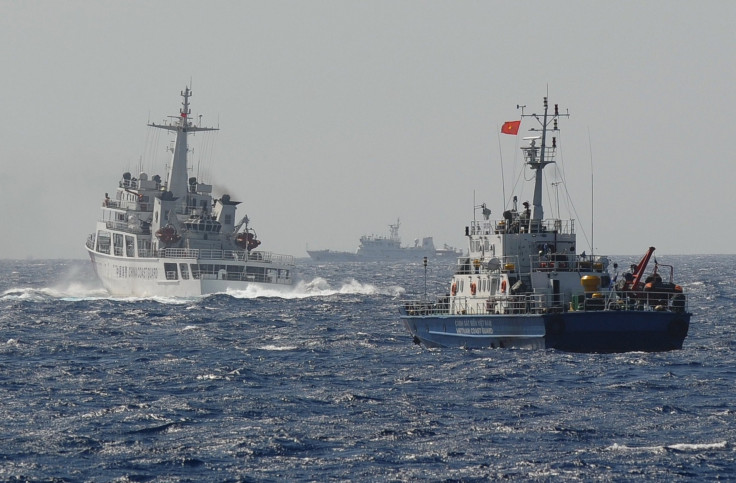US Coast Guard Ups The Ante In South China Sea, Wants 'Pushback' Against China

It looks like the warm tropical waters of the South China Sea will become a bit warmer after U.S. Coast Guard Commandant Adm. Karl Schultz called for a pushback to China’s increasingly aggressive forces in the area. Schultz said during a July 23 teleconference that U.S. allies and regional partners should rebuke China for defying “rule-based order” in the international waterway.
There have been some recent incidents with the sinking of a Philippine fishing boat but the larger issue is the rights to the undersea oil deposits that China is striving to control. It is currently in a standoff with Vietnam on an oil block off the Vietnamese coast.
The strife over control of the South China Sea waters always seem to revolve around Exclusive Economic Zones or EEZs versus the Nine Dash Line that China claims rights to. The Philippines, Vietnam, Taiwan, Malaysia and Brunei all have claimed EEZs for waters close to their shores while the Nine Dash line is a huge U-shaped swath of the sea and encroaches into the EEZs of the other countries.
The United States, Canada and France have sent warships to the area in a display of some military “muscle” and it comes as no surprise that China has objected to this action. Admiral Schultz said the U.S. Coast Guard is currently working with the Vietnamese counterparts and said, “In terms of other claimants in the region, we are collaborating, working very diligently with the Vietnamese. The Vietnamese filled out their Coast Guard multi-fold.”
Right in the middle of this is the uncertain relationship between Philippine President Rodrigo Duterte and U.S. President Trump. Both men appear to admire each other in that they have a similar demeanor in their style of leadership and the type of criticism they get from their critics.
Duterte has appeared to be leaning toward China but more recently has warmed up to the U.S. offering facilities to store military equipment and supplies. Some have the opinion that Duterte is trying to play both ends of the field amid the current U.S.-China trade war.
Hermogenes Esperon, the Philippine National Security Adviser, has said that the Philippines is getting stronger in the West Philippine Sea that is part of the country’s EEZ but that a dose of reality is advised over the military deployment in the disputed areas. He said, "Do you really have total control over the 200-mile EEZ when you only have less than 50 Coast Guard ships? Do you have total control over the area when your Navy does not have so much?
As of now both China and the Philippines have mutually allowed the other country to continue fishing in the areas around the Spratly Islands.
© Copyright IBTimes 2024. All rights reserved.





















